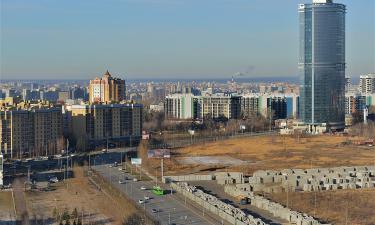Myanmar hydro project to destroy Salween Rives' ecosystem
The hydropower project being built on northeastern Myanmar's Salween Rives is found dangerous for it could displace tens of thousands of villagers and destroy a fragile ecosystem.
The Ta Sang hydropower plant, which includes a concrete dam, is being built in a joint venture between Myanmar's government and Thai power producer MDX Group.
Construction began earlier this year. It is unclear when it will be finished.
WWF claims that damming the Salween, one of Southeast Asia's last untamed rivers, will "displace and negatively impact upon tens of thousands of poor and marginalized people from ethnic minorities in that country."
"The Salween is the only free-flowing river linking the Himalayan glaciers to the coastline of the Andaman Sea," said a statement from Robert Mather of the WWF's Living Mekong Program.
"We are destroying the Salween before we even know what we're losing," Mather said. "From what little we do know about its large number of endemic fish species and abundance of freshwater turtles, we can conclude it is likely to be globally exceptional."
Public affairs officials for the Myanmar government or MDX could not be immediately reached for comment.
Local environmental groups have said damming the Salween, called the Thanlwin in Myanmar, would degrade one of the region's most biologically diverse areas - one that has been designated a UNESCO World Heritage Site.
The government and DMX in April 2006 signed a US$6 billion (EUR5 billion) agreement to build the 7,110-megawatt plant about 480 kilometers (300 miles) northeast of Myanmar's largest commercial city, Yangon.
Most of the electricity from the project will be sold to neighboring Thailand. Myanmar will get an unspecified amount of free power.
Myanmar faces constant power shortages, with many parts of the country suffering frequent outages.
The plant is one of several dam projects planned on the Salween over the next 15 years.
The country signed a memorandum of understanding this month with two Chinese firms to build a second, 2,400-megawatt hydropower plant on the river.
It is unclear when construction on that project would start.
WWF and other groups have urged Thailand to better manage its energy needs and invest in wind and biomass projects within its borders, rather than turning to hydropower.
"It seems more reasonable for Thailand to rely on its own reserves of natural gas for energy security, than to be dependent on imports of electricity from a neighboring country with a high degree of political uncertainty," Kraisak Choonavan, a former Thai senator, said in a statement.
Myanmar, long ruled by a military junta, has drawn international criticism for stifling democracy and its poor human rights record. The country has also long faced insurgencies among various ethnic groups.
Subscribe to Pravda.Ru Telegram channel, Facebook, RSS!




